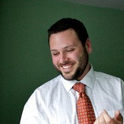- Remedial teaching -- Maryland,
- Academic achievement -- United States,
- Educational evaluation
This report examined the trends in needing remedial coursework, the high school predictors of needing remedial coursework, and the college outcomes associated with needing remedial coursework in Maryland. Data from the Maryland Longitudinal Data System (MLDS) were used to link Maryland public high school graduate records to Maryland college enrollment and degree records. Sixty-seven percent of Maryland public high school graduates graduating in the 2013-2014 academic year who entered college in the 2014-2015 academic year were assessed for remedial coursework in any subject. Forty-one percent needed remedial coursework in any subject. Math was the most commonly assessed subject and was the subject in which students most commonly needed remedial coursework. Maryland two-year public institutions had the highest rates of students needing remedial coursework. Student demographic characteristics, high school program participation, high school attendance, and failing a high school assessment (HSA) were each associated with the likelihood of being assessed to need remedial coursework in college. Students assessed to need remedial coursework in college experienced more negative college outcomes when compared to students not assessed to need remedial coursework. These outcomes included poorer grades in the first non-remedial course taken, lower likelihood of earning a bachelor’s degree, and increased time to degree. Additionally, a lower percentage of students beginning in a two-year college who were assessed to need remedial coursework eventually transferred to and earned their final degree from a four-year college when compared to students not assessed to need remedial coursework. This report concludes with policy implications and future directions for research on remedial coursework in Maryland.
Available at: http://works.bepress.com/mathew-uretsky/12/

Note: Dr. Uretsky was affiliated with the University of Maryland, Baltimore.
© Maryland Longitudinal Data System Center 2016